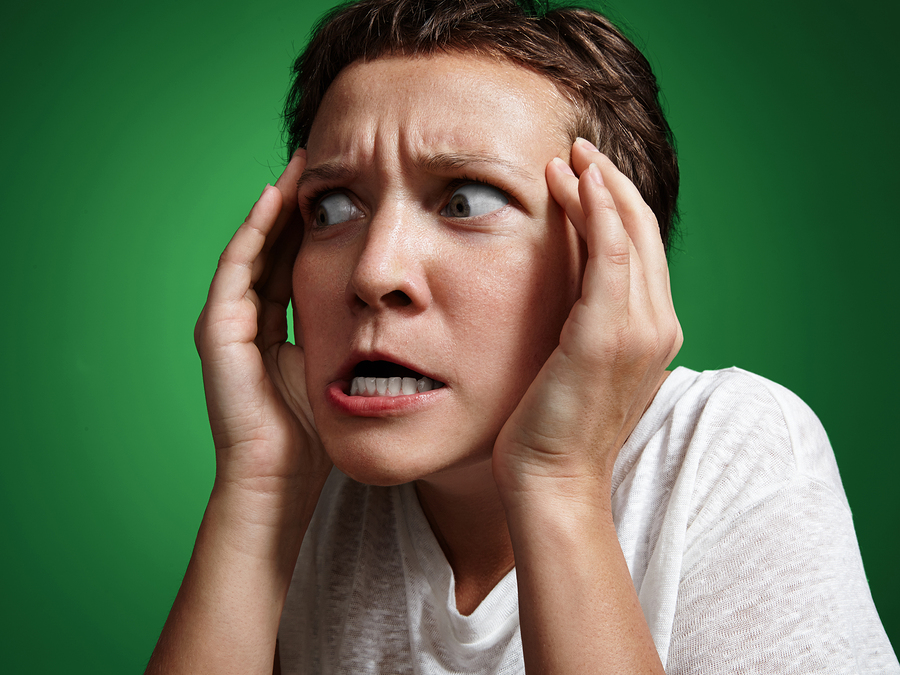Crazy I Was Crazy Once Original: Unpacking A Familiar Phrase
Have you ever heard someone say, "Crazy? I was crazy once. They locked me in a room. A rubber room. A rubber room with rats. And rats make me crazy." It's a line that, quite honestly, pops up in all sorts of places, from internet memes to casual conversations, yet its exact beginnings are a bit hazy for many. This particular saying, with its rhythmic repetition and escalating absurdity, seems to capture something quite universal about how we think about sanity, or perhaps the lack of it, and even the very nature of human behavior. It is a phrase that, in a way, makes us pause and consider what "crazy" truly means to us, and to others, at any given moment.
This well-known phrase, "crazy i was crazy once original," really sticks with you, doesn't it? It has a way of sounding both funny and a little unsettling, which is pretty interesting when you think about it. People often use it to poke fun at themselves, or maybe to describe a time when things got a bit out of hand. It's almost like a secret handshake for anyone who's ever felt a little unhinged, or perhaps just had a moment of wild abandon.
So, what makes this specific string of words so catchy and enduring? It's more than just a silly saying; it taps into something deeper about how we perceive mental states and the fine line between what's considered "normal" and what's seen as "mad." As my text points out, "crazy" can mean someone is "foolish, stupid, mad, silly, absurd, idiotic, irrational, lunatic," or perhaps just "of unsound mind." This phrase, in its own odd way, plays with all those different shades of meaning, making us wonder about the story behind the person saying it.
- Kendall Jenner In Nude
- Dick Van Dyke Wife
- Taylor Swift Album Covers
- Gordon Ramsay Wife
- Hugh Jackman Sutton Foster
Table of Contents
- The Roots of the Phrase: Where Did It Come From?
- The Many Faces of "Crazy" in Our World
- The Impact of the "Crazy I Was Crazy Once Original" Phrase
- Reclaiming the Label of "Crazy"
- Frequently Asked Questions About the Phrase
The Roots of the Phrase: Where Did It Come From?
The phrase "Crazy? I was crazy once. They locked me in a room. A rubber room. A rubber room with rats. And rats make me crazy" is, in fact, a fascinating piece of modern folklore. Its precise "original" source is a bit tricky to pin down, which is quite common for phrases that gain popularity through word of mouth and the internet. Many people connect it to various animated shows, video games, or even urban legends. It truly feels like something that just appeared one day, ready for us to use and adapt. This makes it, you know, a very organic kind of saying.
What Does "Crazy" Really Mean?
Before we go much further, it's worth taking a moment to think about what the word "crazy" actually means, as my text gives us quite a few ways to look at it. It can describe someone "of unsound mind," or someone whose "mind does not work normally or whose behavior is very strange or out of control." We might say, "Have you met the crazy old lady upstairs?" if we think someone is acting really oddly. But it also means "marked by thought or action that lacks reason." So, it's not just about mental health, but also about decisions that seem, well, a bit daft.
My text also points out that "crazy can be defined as a state or behavior that is highly irrational, unpredictable, or mentally unstable." It often refers to "thoughts, actions, or emotions that deviate from commonly" accepted norms. So, when someone says they "were crazy once," they might be referring to a time when their actions were wildly out of line with what others expected, not necessarily a clinical diagnosis. It's really, you know, a very broad term.
- Cereal Product Recalls
- Is Chappell Roan Gay
- Cardi B Kids
- American Airlines Flight Diverted
- Brock Purdy Wife
Interestingly, the word "crazy" can also be used in a much softer way, to "love someone very much, or to be very interested…" For example, you might be "crazy about" a new hobby or a favorite person. This just shows how versatile, and perhaps even contradictory, the word can be. It's almost as if the word itself has a bit of a split personality, don't you think?
The Rhythm and the Hook: Why It Sticks
The reason this specific phrase, "crazy i was crazy once original," has such staying power is partly because of its clever structure. It uses repetition, building up the story with each line: "A room. A rubber room. A rubber room with rats." This kind of pattern is very memorable, making it easy for people to recall and repeat. It's almost like a little poem, really, or a chant.
Then there's the twist at the end: "And rats make me crazy." This final line brings it full circle, creating a loop where the very thing meant to contain the "craziness" actually causes it. This ironic punchline is, you know, quite brilliant. It captures a sense of inescapable absurdity, which many people can relate to, especially when feeling trapped or overwhelmed by something.
The phrase also has a touch of dark humor, which often helps things spread. It talks about serious subjects like being confined and rats, but in such an over-the-top way that it becomes funny. This blend of the grim and the goofy is very appealing to many, making it a perfect fit for memes and jokes. It's a bit like finding humor in something that's otherwise, you know, a little scary.
The Many Faces of "Crazy" in Our World
The idea of "crazy" is something we encounter all the time, in so many different ways. It's not just about a medical condition; it's a social label, a descriptor for extreme emotions, and even a way to praise someone's bold ideas. My text highlights this, showing how "crazy" can mean someone is "mentally deranged" or simply "very foolish or strange." This wide range of meanings really shows how complex the concept is.
Societal Views of Sanity and Madness
Society has always had a way of defining what's considered "sane" and what's "mad." What one group sees as "wise, sound, sane, sensible, prudent, reasonable, judicious, clever," another might view as totally off the wall. People thought they were all "crazy to try to make money from manufacturing," as my text points out, because it was a new, risky idea at the time. This shows that what's "crazy" often depends on the prevailing beliefs and norms of the time, or the people involved.
Sometimes, a person's intense passion can be mistaken for "craziness." My text mentions that to some, a person "is not a brusque crazy, but 'appropriately passionate'." This distinction is really important, you know. It suggests that what looks like mental instability to one person might just be a very strong, perhaps even fiery, way of expressing oneself to another. It's all about perspective, really.
The idea of someone being "caused by or arising from mental derangement" or "marked by or manifesting insanity" is, of course, a serious aspect of the word "crazy." But the common usage often blurs these lines, applying the term to anything that seems out of the ordinary or beyond our usual comprehension. This makes the word a bit of a catch-all, you know, for anything that seems a little off.
When "Crazy" Is Not So Crazy
It's interesting how often "crazy" is used to describe something that isn't truly about mental health at all. We might say, "That idea is crazy!" when we mean it's incredibly bold or innovative, not that it's irrational. Or, "The traffic was crazy today," meaning it was just really bad or chaotic. This shows that the word has, you know, a very flexible meaning in everyday talk.
Sometimes, what seems "crazy" at first turns out to be quite brilliant or ahead of its time. Think about inventors or artists who were once dismissed as "mad" but later celebrated for their unique vision. My text defines "crazy" as "marked by thought or action that lacks reason," but often, what seems to lack reason to one person might be a totally different kind of logic to another. It's a subtle difference, but a very important one, too it's almost.
The phrase "crazy i was crazy once original" itself, in a way, plays with this idea. The speaker isn't necessarily saying they were clinically insane, but perhaps that they experienced a moment, or a period, where their actions or thoughts were wildly unconventional, or perhaps just very intense. It's a reflection on past behavior, often with a hint of amusement or a knowing nod. It's like looking back and saying, "Yeah, that was a wild time," you know?
The Impact of the "Crazy I Was Crazy Once Original" Phrase
This phrase, in its various forms, has certainly left its mark on our conversations and culture. It's more than just a throwaway line; it serves several purposes, from providing a quick laugh to offering a way to talk about difficult experiences. It's a phrase that, you know, has a lot of mileage.
Humor and Coping
One of the main reasons this phrase is so popular is its comedic value. The escalating nature of the story, leading to the ironic punchline about the rats, is just funny. Humor is a powerful tool, and sometimes, making light of something that could be serious, like mental states or confinement, helps us cope with our own anxieties or past experiences. It's a way to, you know, lighten the mood a bit.
People use it to describe chaotic situations, or even their own moments of extreme stress or irrationality, in a lighthearted way. It allows for a kind of self-deprecating humor that many find relatable. It's like saying, "I've been there, things got wild, but I'm okay now," which is a very human thing to do, actually. It helps us connect with others over shared experiences of feeling a bit overwhelmed.
Pop Culture Presence
The phrase has, quite frankly, become a meme in its own right. It's appeared in countless online posts, videos, and image macros, often adapted to fit different contexts. This widespread use in pop culture has cemented its place as a recognizable and frequently quoted line. Its adaptability means it can be used for anything from commenting on a messy room to a truly wild story. You know, it's pretty versatile.
Its presence across various media, even if the "original" source remains somewhat elusive, speaks to its universal appeal. It captures a certain kind of dark, absurd humor that resonates with many. This widespread adoption shows how a simple, well-crafted line can truly become part of our shared cultural language, which is, you know, quite something.
Reclaiming the Label of "Crazy"
In recent times, there's been a growing movement to reclaim words that were once used to shame or diminish people, and "crazy" is, you know, one of them. While the clinical understanding of mental health is serious and important, some people choose to embrace the term "crazy" in a defiant or empowering way. It's a bit like saying, "Yes, I might be different, or my ideas might seem unconventional, and that's okay."
This reclaiming can be a way of challenging societal norms about what's "normal" or "sane." It highlights the idea that sometimes, the most innovative or passionate individuals are those who "deviate from commonly" accepted thoughts, as my text suggests. They might be the ones who "think outside the box," or who are willing to take risks that others deem "foolish" or "irrational." It's almost a badge of honor for some, really.
When someone says, "Crazy? I was crazy once," they might be hinting at a past where they felt misunderstood or judged for being different. By repeating the phrase, they might be taking ownership of that perceived "craziness" and transforming it into a story of resilience or unique experience. It's a powerful way to, you know, turn a negative into a positive, or at least a talking point.
This shift in perspective is a good reminder that words have many layers of meaning, and how we use them can change over time. What was once a dismissive label can, with enough collective effort, become a symbol of strength or individuality. It shows how language is, you know, a living thing, always changing and adapting with us.
Frequently Asked Questions About the Phrase
People often wonder about the specific origins and meanings behind the "crazy i was crazy once original" phrase. Here are some common questions and thoughts.
What is the original source of the "Crazy? I was crazy once" quote?
The precise "original" source is not definitively known, which is very common for popular internet memes and urban legends. It gained widespread popularity through various online communities, forums, and humorous content. It's almost as if it just, you know, materialized out of thin air, becoming a part of our collective consciousness without a single creator.
Why is the "rubber room with rats" part so memorable?
The "rubber room with rats" part is quite memorable due to its escalating, repetitive structure and its dark, absurd humor. The imagery of a "rubber room" suggests confinement and a lack of stimulation, while the introduction of "rats" adds a disturbing, yet comically exaggerated, element that then becomes the cause of the "craziness." It's a very vivid picture, you know, that sticks in your mind.
How is the word "crazy" used differently in this phrase compared to its general meaning?
In this phrase, "crazy" is used in a self-deprecating or humorous way to describe a past state of extreme behavior or a chaotic situation, rather than necessarily a clinical mental health condition. While my text defines "crazy" as "of unsound mind" or "mentally deranged," the phrase often uses it to mean "very foolish or strange" in a relatable, almost exaggerated, sense. It's a bit like saying, "I went through a wild phase," you know, without literally meaning a diagnosis.
Understanding this phrase helps us see how language evolves and how we use humor to process complex ideas about our minds and experiences. Learn more about the power of language on our site. This phrase, and others like it, often serve as a cultural touchstone, reflecting our shared human experiences and our ways of coping with the unpredictable nature of life. You can also explore other fascinating linguistic phenomena here. It's truly interesting how a few words can carry so much meaning, isn't it?
- Were The Millers 2
- Taylor Swift Cats
- Lost Ending Explained
- Daniel Radcliffe Wife
- Prince Charles And Prince

Businessman going crazy stock image. Image of head, anger - 35918095

Drinkware Drink & Barware Home & Living People are crazy etna.com.pe

Funny and Crazy Faces (46 pics) - Izismile.com